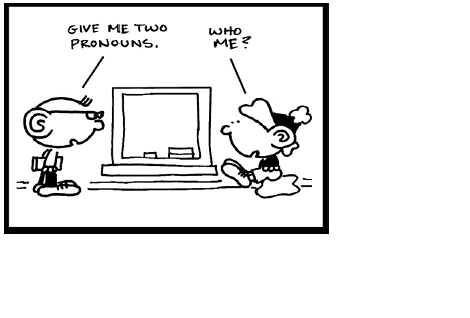Questões de Concurso
Sobre pronomes | pronouns em inglês
Foram encontradas 640 questões
Answers the question according to the text below.
TEXT I
Answers the question according to the text below.
TEXT I
Complete the sentences with some or any and choose the correct alternative.
I am not hungry. I’m not hungry _____.
I am going out. I am going out ____.
I haven’t been to China. ___________ .
Would you like ____ tea?
Read the sentence and choose the best alternative:
The book _______ you lent me is very interesting.
Choose the right answer:
Several researchers were working on the survey, each came up with some interesting proposals, and typically ____ claimed that ____ was the best.
The majority of ____ are concerned about new
technology, until we’ve actually tried them out for
____.
We have inducted a daily dump process ____ we are producing 800 kilograms to 1,000 kilograms of organic compost in our society.
Choose the best option that completes the context.
Analyze the paragraph below.
It was especially unusual to Helen, that remembered fondly the care and support they provided her mother after she was widowed.
The relative pronoun “that” can be replaced by.
The song _______ he is playing is a waltz.
“I know Mrs. Miller, but I don’t know ________ husband.”
Though the bright scene before us betrayed ____ words, I was nevertheless certain of ___ place on the calendar.
Identify the option that completes the context given.
My name is Sarah and I don’t like ________________ in my class, but _______________once told me that I should give people a change by being nice and open hearted. I think __________________ deserves a chance.

Look at the picture and choose the CORRECT alternative.

Analyze the sentence below.
“I meet a woman that can speak six languages.”
The relative pronoun “that” can be replaced by:
1. Q:__________ do you from? A: I´m from in Canada.
2. Q:__________ will you arrive in Brazil? A: Next week.
3. Q:__________ is your favorite fruit, banana or Orange? A: It´s banana.
4. Q:__________ telephone keeps ringing? A: It´s mine.